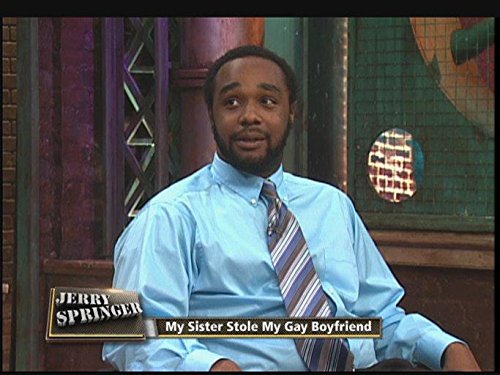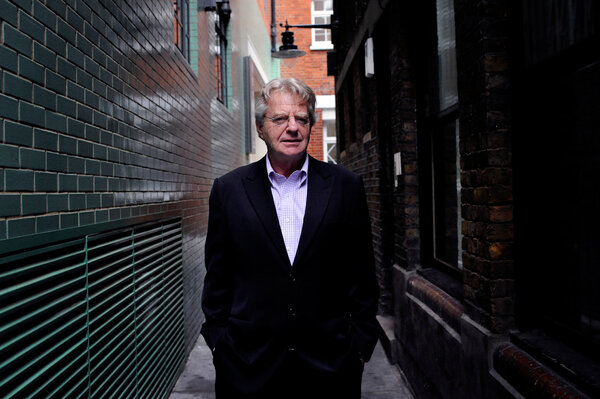Table of Contents
The 1990s witnessed a seismic shift in the landscape of daytime television, thanks in large part to the emergence of captivating talk shows. This transformative era saw the rise of iconic hosts like Oprah Winfrey and Jerry Springer, whose shows not only entertained millions but also tackled important social issues. In this article, we’ll explore how ’90s talk shows left an indelible mark on popular culture and shaped the daytime TV landscape.
The 1990s witnessed a seismic shift in the landscape of daytime television, thanks in large part to the emergence of captivating talk shows. This transformative era saw the rise of iconic hosts like Oprah Winfrey and Jerry Springer, whose shows not only entertained millions but also tackled important social issues. In this article, we’ll explore how ’90s talk shows left an indelible mark on popular culture and shaped the daytime TV landscape.
Oprah Winfrey, with her empathetic and insightful approach, used her platform to delve into a wide range of topics, from personal empowerment and self-improvement to societal issues like racism, addiction and LGBTQ+ rights. Her show, “The Oprah Winfrey Show,” became a beacon of hope for viewers seeking guidance and inspiration. It set a precedent for talk shows to become spaces for meaningful dialogue and change.
Conversely, shows like Jerry Springer’s, known for their sensational and often chaotic content, represented a different facet of ’90s talk shows. They pushed the boundaries of television entertainment, showcasing provocative and controversial themes that captured the attention of a diverse audience. While some criticized these shows for their sensationalism, they cannot be denied their impact on daytime television, as they drew viewers in with their unique brand of spectacle.
The influence of ’90s talk shows extended beyond the television screen. They gave rise to a new form of celebrity: the talk show host. Oprah Winfrey, for example, transitioned from being a talk show host to a media mogul, philanthropist and cultural influencer. Her book club and humanitarian efforts demonstrated how a talk show could serve as a launchpad for broader societal impact.
Moreover, the theme of confession and confrontation, often central to ’90s talk shows, resonated with audiences and set the stage for reality television’s explosion in the following decades. Shows like “The Jerry Springer Show” introduced a level of raw, unfiltered human drama that would become a hallmark of reality TV.
In summary, the 1990s talk shows, spearheaded by figures like Oprah Winfrey and Jerry Springer, ushered in a new era of daytime television. They not only entertained but also addressed pressing social issues, leaving an indelible mark on popular culture. Their impact can still be seen in the diverse landscape of today’s talk shows, reality TV and the enduring legacy of the hosts themselves. These shows, with their mix of entertainment, confrontation and genuine human connection, continue to influence the way we consume media and engage in conversations about the world around us.
If you’d like to dive deeper into this subject, there’s more to discover on this page: Jerry Springer: the man who changed US television for better and …
A Changing Landscape
The 1990s marked a significant departure from the talk show formats of previous decades. While earlier talk shows often featured polite discussions and interviews, the ’90s brought a wave of change. These new shows combined elements of entertainment, confessional storytelling and often sensationalism. The result was a captivating blend of reality television and informative discussions that resonated with viewers.
“The 1990s ushered in a revolution in talk show formats, departing from the decorum of earlier decades. Gone were the days of polite discussions; the ’90s introduced a wave of change, amalgamating entertainment, confessional storytelling and a touch of sensationalism. This dynamic mix gave birth to a captivating genre—a fusion of reality television and enlightening discussions, striking a chord with viewers. The era not only shaped TV but also altered our perception of talk shows, laying the foundation for the diverse and engaging formats we enjoy today.”
For a comprehensive look at this subject, we invite you to read more on this dedicated page: Section I: The Changing Media Landscape | Pew Research Center

“The Oprah Winfrey Show” (1986-2011): A Cultural Phenomenon
Although “The Oprah Winfrey Show” began in the 1980s, it reached its zenith of popularity during the 1990s. Oprah Winfrey’s talk show was more than just a television program; it was a cultural phenomenon. Oprah became a trusted source of information and inspiration, known for her empathetic interviews and thought-provoking discussions.
“The Oprah Winfrey Show” tackled a wide range of topics, from self-help and personal transformation to social issues such as racism, abuse and addiction. Oprah’s ability to connect with her audience on a personal level made her show a safe space for viewers to share their stories and seek guidance. Her Book Club segment also contributed to a resurgence in reading and book culture, making literature a central part of the show.
Additionally, you can find further information on this topic by visiting this page: Thesis Corrected 2

“The Jerry Springer Show” (1991-2018): Sensationalism and Controversy
On the other end of the spectrum was “The Jerry Springer Show,” known for its sensational and often controversial content. The show featured confrontational confrontations, outrageous guest revelations and intense audience reactions. It became a guilty pleasure for many viewers who tuned in for the chaos and drama.
While “The Jerry Springer Show” was criticized for its sensationalism, it also served as a reflection of certain aspects of society, highlighting issues like infidelity, unconventional relationships and family conflicts. Its “Final Thought” segments occasionally offered genuine, heartfelt messages amid the chaos, demonstrating that even in the most sensational environments, moments of sincerity could emerge.
To delve further into this matter, we encourage you to check out the additional resources provided here: The Jerry Springer Show (TV Series 1991–2018) – News – IMDb

Impact on Pop Culture
Both “The Oprah Winfrey Show” and “The Jerry Springer Show” had a significant impact on pop culture. Oprah’s influence extended beyond the screen; she launched the careers of experts, authors and celebrities and used her platform to champion various causes. Her philanthropic efforts, including the establishment of the Oprah Winfrey Leadership Academy for Girls in South Africa, demonstrated the power of celebrity for social change.
“The Jerry Springer Show,” while polarizing, became a cultural touchstone for its outrageous moments and catchphrases. It demonstrated the appeal of unscripted and sensational television, paving the way for the reality TV boom that would follow in the 2000s.
For a comprehensive look at this subject, we invite you to read more on this dedicated page: The Jerry Springer Show (TV Series 1991–2018) – News – IMDb

The Enduring Legacy
The ’90s talk shows, exemplified by Oprah Winfrey and Jerry Springer, left an enduring legacy in the world of television. They not only entertained and informed but also sparked conversations about important social issues. These shows demonstrated the power of television to connect with audiences on a personal level and address both the uplifting and challenging aspects of the human experience. Their influence continues to be felt in the diverse landscape of modern daytime television.
The ’90s talk shows, with iconic figures like Oprah Winfrey and Jerry Springer at the helm, remain a cultural touchstone in the annals of television history. These programs transcended the boundaries of mere entertainment, leaving an indelible mark on our collective consciousness and shaping the trajectory of daytime television.
Oprah Winfrey, often referred to as the “Queen of Talk,” redefined the talk show genre by using her platform to explore an array of topics, from personal growth and empowerment to social justice issues. Through her empathetic and candid interviews, Oprah connected with her audience on a profound level. She wasn’t just a host; she was a trusted friend guiding viewers through the complexities of their lives. Her Book Club segment encouraged millions to embrace the joy of reading, influencing publishing trends and fostering a nationwide reading culture. Oprah’s dedication to highlighting stories of triumph and resilience inspired countless individuals to overcome adversity and strive for personal growth. Her impact was so profound that the “Oprah Effect” became synonymous with her ability to turn a product or book into a bestseller with a mere mention.
On the flip side, Jerry Springer’s show may have been notorious for its sensationalism, but it too left an indelible mark on television. By delving into the more sensational and controversial aspects of human behavior, the Jerry Springer Show pushed the boundaries of what could be discussed on daytime TV. It served as a reflection of societal taboos and gave voice to a wide range of perspectives. While it often descended into chaos, it also served as a stark mirror reflecting some of the less savory aspects of society, forcing viewers to confront uncomfortable truths about human nature and interpersonal dynamics.
Collectively, these ’90s talk shows showcased the incredible power of television to engage with audiences on a deeply personal level. They were not just passive forms of entertainment; they were platforms for dialogue, empathy and introspection. Oprah and Jerry Springer both understood that television had the potential to be a force for good, whether by uplifting and inspiring viewers or by challenging societal norms and sparking important conversations.
Their influence on modern daytime television is undeniable. Today, talk shows continue to tackle a wide array of topics, from mental health and relationships to politics and culture, following in the footsteps of these ’90s trailblazers. Moreover, the legacy of Oprah and Jerry Springer has influenced the broader media landscape, as the lines between traditional television and digital media blur. The lessons learned from their shows about the power of connection and engagement with audiences continue to shape how content creators approach storytelling and dialogue, ensuring that the impact of ’90s talk shows endures in our ever-evolving media landscape.
For additional details, consider exploring the related content available here The ’90s Aesthetic. Finding the message of the decade… | by Ryan …

More links
Should you desire more in-depth information, it’s available for your perusal on this page: THE MEDIA BUSINESS; So, Who’s Your Daddy? In DNA Tests, TV …
